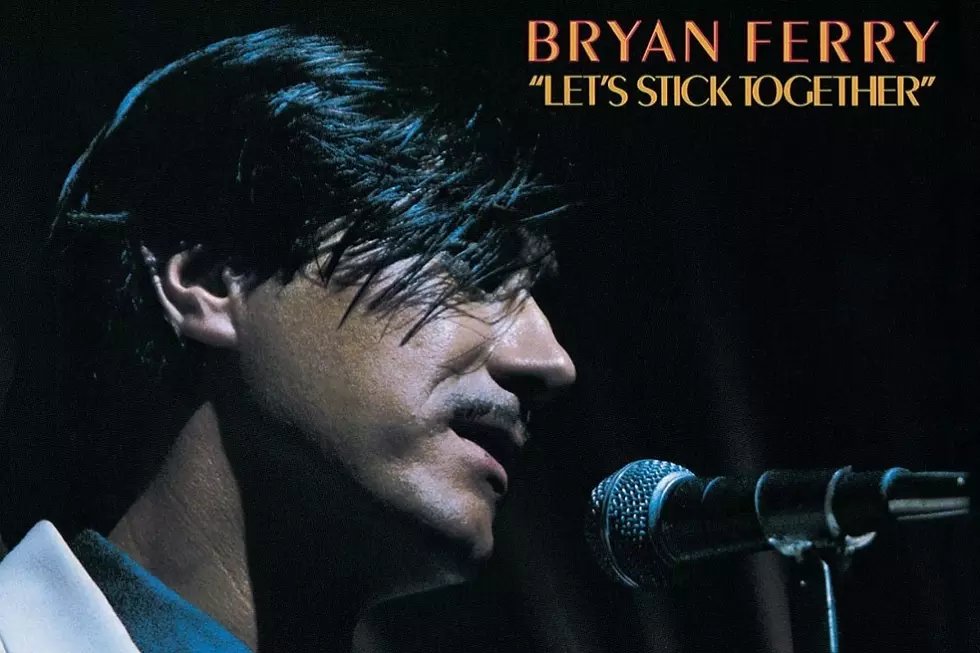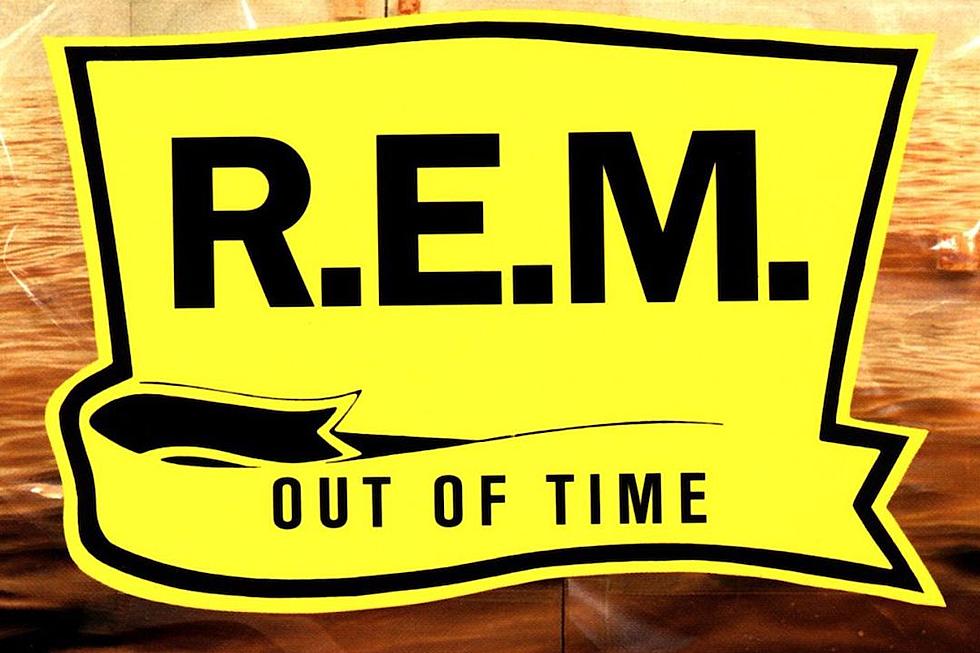30 Years Ago: Bryan Ferry Finally Returns With More Upbeat ‘Bete Noire’
As with so much of Bryan Ferry's career, the more dance-oriented Bete Noire took longer than he'd ever imagined. By the time it was over, an expected three- or four-month timeframe had ballooned into two years. He'd recorded in Los Angeles (twice), Paris (twice), Nassau and London (also twice).
Perhaps unsurprisingly, a sense of cosmopolitan displacement permeates Bete Noire – but so does a considered attempt at lightening up after 1985's gold-selling Boys and Girls. Ferry collaborated on the project, which arrived on Nov. 2, 1987, with producer Patrick Leonard of Madonna fame.
Leonard ended up co-writing five of the nine tracks on this album, but that did little to alleviate Ferry's obsessive attention to every detail – beginning with the lyrics. Re-writes followed prior re-writes, which in turn were edits from still-earlier passes at the same material.
Ferry admitted, in a talk with Q magazine in 1988, that he "thought it was going to be a very quick record to do, but what seems to be my natural work process now is to keep re-writing things." He'd begun working on "New Town," for instance, some nine years earlier.
Bete Noire also marked a shift from a 48-track recording console used for Boys and Girls to a 56-track edition, and Ferry filled every one of them. Guest stars included guitarist David Gilmour, drummer Andy Newmark, bassist Guy Pratt, singer Paul Johnson and guitarist (and fellow Roxy Music alum) Neil Hubbard, among others. Johnny Marr of the Smiths also co-wrote "The Right Stuff," this album's first single.
"The trouble is, the longer you've been doing it, the more there is to sift through – and you find there are more things to try, as well," Ferry told Q Magazine. "That's the hard thing about longevity of career: You're always trying to do something a little bit different to what you've done already, and that takes time. ... And you not only have your own high expectations of yourself, but other people's, too. So, there's a pressure both from within yourself and from outside. That kind of pushes you."
Often, the resulting songs present as tales of slippery allure and hellish obsession. Part of that hell became finally completing this shift toward modernity. "It would be very nice to feel dangerous now," Ferry told the Independent in 1997, "but that's the awful thing about growing up: You can improve your craft as years go by, but there's nothing like being new."
Still, Ferry said he likes the finished product, how ever difficult it is to get to that point with each album.
"I go in with less of a comprehensive idea than I used to. And apart from the fact that it takes a long time, that has its advantages," he told Q. "It means that interesting things can happen, because you never see the song as a fixed thing: It's always changing. I always work on all the songs at the same time. I don't finish one, then start another. So, I'm constantly moving from song to song. I might be working on 10 songs at the same time."
Listen to Bryan Ferry Perform 'Kiss and Tell'
Tracks like "Limbo," "Day For Night" and "Seven Deadly Sins" combined Roxy Music's debonair, Avalon-era romanticism with the mechanized precision associated with late-'80s pop. But it wasn't all aimed at the dance floor: Ferry gave "Zamba" a ghostly feel; it's the sound of a nearly defeated man. The title track – which came together slowly, then all at once – was shrouded in French-inspired mystery.
He collaborated on "Bete Noire" with a group of performers from a Buenos Aires-based troupe called Tango Argentina. Ferry had first seen them three years earlier when he spotted a newspaper ad for one of their performances, and dropped by on a lark. He then ran into them again during one of the Los Angeles sessions, and invited them back to the studio.
"It was a great musical experience," Ferry told All Star in 1987. "They were off on tour somewhere else the next day, so we had to finish it that night: It was after midnight when we got started, and I guess we finished about two in the morning. Usually I work with musicians one by one, but this was done live in the studio."
"Kiss and Tell," the album's gimlet-eyed second single, was said to reference his former flame Jerry Hall, who'd published a tell-all memoir a couple of years earlier. Their romance ended when she left Ferry for Mick Jagger in the late '70s. She'd appeared as the cover model for Roxy Music's 1975 album Siren in Wales and in several of Ferry's videos, including 1976's "Let's Stick Together."
Ever private, Ferry didn't address any of that head-on. "The area I explore has infinite possibilities, because it's something that dominates most people's lives," Ferry told the New York Times in 1988. "Every country's songs are generally about love and anguish."
"The Right Stuff" was actually adapted from "Money Changes Everything," an instrumental b-side Marr wrote for the Smiths' 1986 single "Bigmouth Strikes Again." Their collaboration also helped loosen Ferry up a bit.
"Someone sent me a tape of the things he had done, and I got very excited about one of them and did a version of it," Ferry told All Star magazine. "He came down and played on it and we got on really well. ... He's very different from Pat. Pat is a whizz keyboard player and programmer with ten synthesizers linked up, a hi-tech studio type artist – and Johnny is just a turn-on-his-guitar-and-go type of player, which is great."
Bete Noire followed Boys and Girls into the U.K. Top 10, while "The Right Stuff" got to No. 37 in Ferry's native country. "Kiss and Tell" also became Ferry's lone solo Billboard Top 40 hit. It seemed the hard work had paid off – even if this album hadn't quite reached the commercial heights of Boys and Girls back home.
Unfortunately, fans would have to endure another long wait. Ferry vanished again as he began another laborious creative process, even as he dealt with issues both professional (he changed managers more than once) and personal (Ferry's mother died in 1991). He'd originally entered the studio in 1989 hoping to "write eight great songs." He ended up putting out a collection of cover tunes, 1993's Taxi, in the meantime. Finally, some five years later, 1994's Mamouna emerged as a long-awaited collaboration with ex-Roxy Music bandmate Brian Eno.
Roxy Music and Bryan Ferry Albums Ranked
More From Diffuser.fm









